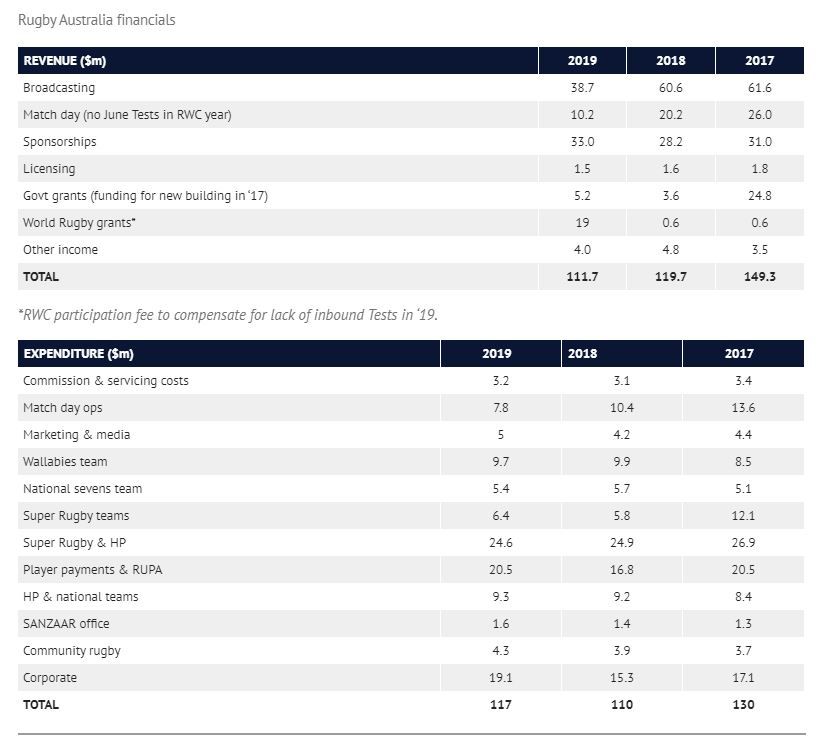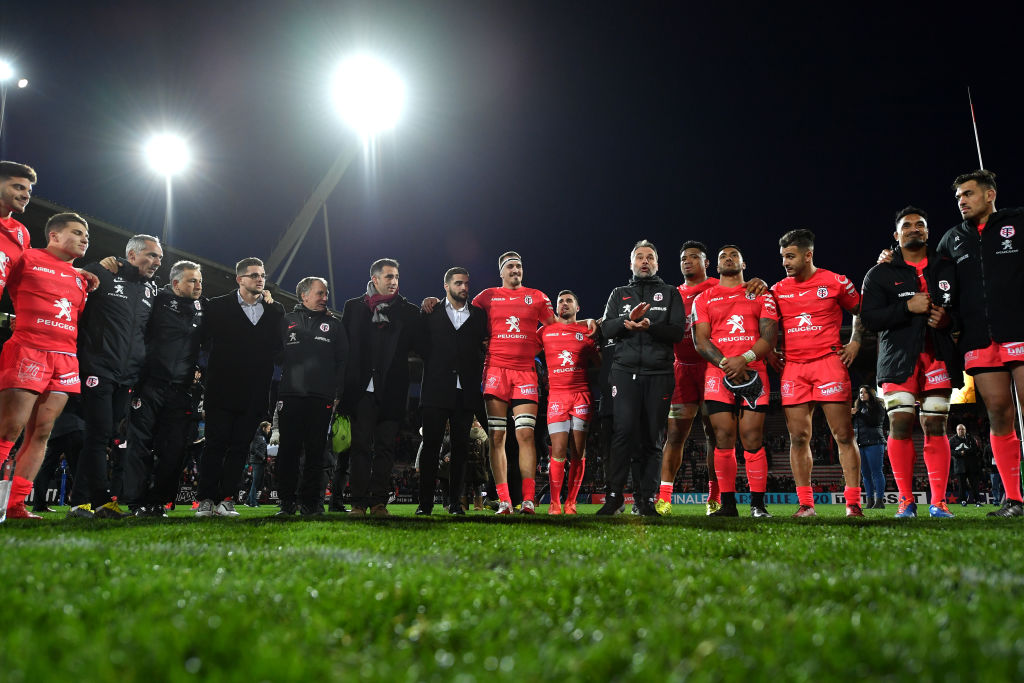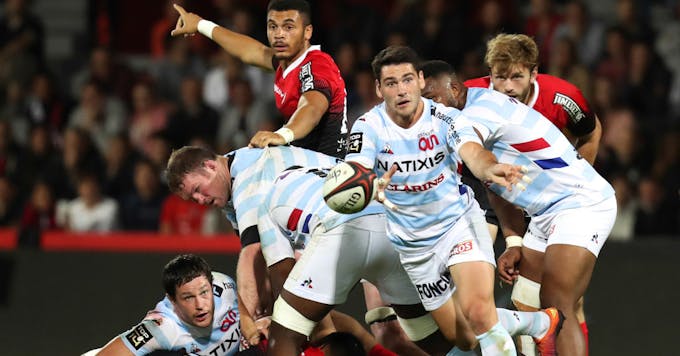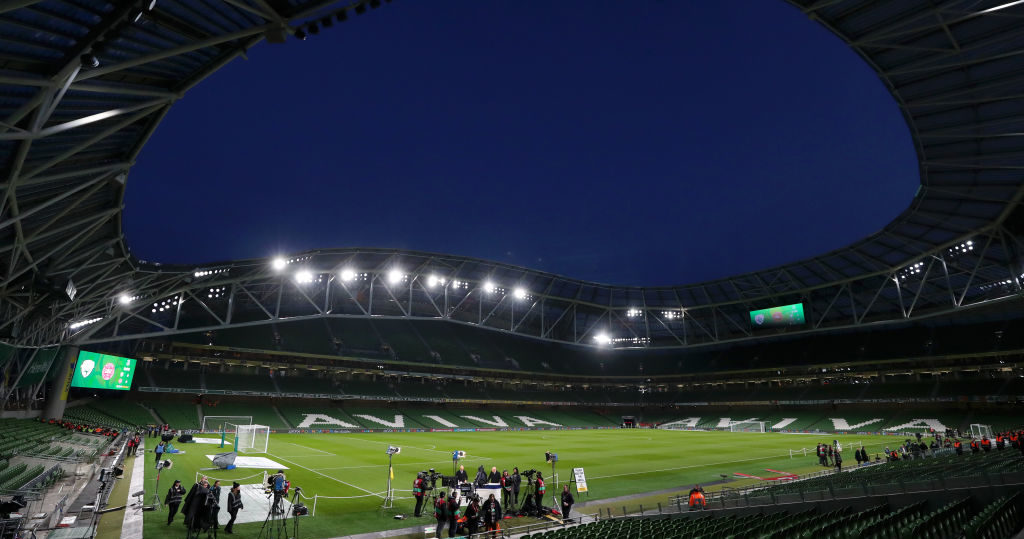Rugby Finances
-
Cancelled autumn and Six Nations Tests would cost WRU £50m of revenue
-
Interesting that Top 14 apparently dont have option to cut wages.
Clubs in France still bear weightier financial responsibilities to their employees than English clubs. “French law doesn’t enable clubs to do what British law does,” Gillham adds. “Clubs in England have just cut salaries by 25 per cent – Newcastle stopped paying anybody. That’s not possible in France.”
That is from 08/04 ^
Also in that article, these paragraphs:One possibility may be interest-free or low-rate loans to clubs, but whatever lifeboat options are finally agreed, Gillham said that the LNR will honour its commitments, and that it has strong support from its partners, including pay-TV broadcaster Canal Plus, which has a better current relationship with French rugby than football.
It recently held back a scheduled €110million payment for broadcast rights to French football’s Ligue 1.
“This is the perfect example of force majeure,” a spokesman told AFP at the time. “There are no more matches, so there are no more payments. We are strictly applying the terms of the contract and we don’t see why we would do it any other way. Canal Plus is not a bank.”
Gillham said Canal, which is also paying €97million a season for Top 14 broadcasting rights, will remain a strong partner for the sport.
“Canal Plus loves rugby,” he said. “Canal Plus thinks it gets value for money from rugby. And Canal Plus is a partner until at least 2023. The TV money is not going to go away,” Gillham, who sits on the management board of the broadcaster’s parent company, Vivendi, said.
6 days later on 14/04:
French pay-television broadcaster Canal Plus will not pay the final rights fee instalment for this season’s Top 14 rugby union competition, it has been reported.
The move comes despite expectations in some quarters that the broadcaster’s strong relationship with rights-holder Ligue National de Rugby would ensure the fee was met.
Canal Plus was next month due to pay the remaining 15 per cent of its €97m ($104.5m) fee for the 2019-20 season, but this will no longer happen, reports L’Équipe.
The broadcaster had shown 60 per cent of matches before the league was suspended due to the Covid-19 pandemic. Canal Plus has already paid 85 per cent of the annual fee (€82.5m), suggesting that, in theory, it could push for a re-imbursement of around €24.3m from the LNR.
-
I've made this table of the financial positions going into the crisis for the 8 major unions, supporting, or subsidising professional rugby.

Lots of various factors in play though. For example
- For Ireland - do they fund their entire professional game pretty much from $USD93.83m. How much provinces revenue and spending is separate from this?
- England 'only' fund UK£25.5m per year in grants to the 13 Premiership clubs, which is $USD27.64m out of a 2 year average of $USD238.55m in revenue.
-
@Crucial said in Rugby Finances:
How did Ireland build such big reserves?
I remember that NZ created a big pot some years ago with smart currency futures on sponsorship (or something similar). Ireland's one surely can't just be from operating profits.I think it's pretty obvious how!

-
@Crucial said in Rugby Finances:
How did Ireland build such big reserves?
I remember that NZ created a big pot some years ago with smart currency futures on sponsorship (or something similar). Ireland's one surely can't just be from operating profits.I put a "maybe?" for their one.
Its hard to read different types financial reports and know if its the same thing.
Ireland is here, if you want to look: https://www.irishrugby.ie/irfu/annual-report/BTW, the ARUs reporting is farking hard to find and read. No idea what their revenue is unless a media outlet reports it. No wonder they are farked .....
-

The majority of their money is stuck in loans (I guess to sub unions, they won't be getting that back in a hurry) and joint ventres. They have 38 million of cash (highlighted wrong year, sorry). The IRFU is doing bloody well for itself, a lot powered a Schmidts conquering ABs etc, they were on a high here!
-
@Machpants said in Rugby Finances:

The majority of their money is stuck in loans (I guess to sub unions, they won't be getting that back in a hurry) and joint ventres. They have 38 million of cash (highlighted wrong year, sorry). The IRFU is doing bloody well for itself, a lot powered a Schmidts conquering ABs etc, they were on a high here!
Iirc they had to bail out Munster and their Thomomd redevelopment debt. So, that is probably mostly in a loan to Munster.
Edit.
Actually only €6.86 million left (Original 2007 a loan of 11.5 million euro)
Here: https://www.the42.ie/thomond-park-naming-rights-munster-4736154-Jul2019/A loan from the national union helped the southern province to redevelop the Limerick stadium in 2007/08.
There have been struggles for Munster to repay that debt in recent years, although a €2.6 million payment in 2017/18 helped the province to reduce the total owed to its current €6.86 million.
The 2017/18 season also saw the province renegotiate its schedule of loan repayments with the IRFU, reducing their scheduled repayments down from €500,000 to €100,000 per year.
The new deal also means that the IRFU will receive 50% of Munster’s multi-year ticket sales, 50% multi-year corporate box sales, as well as 50% of any Thomond Park naming rights income on an annual basis.
-
Doesn't the IRFU have Aviva Stadium as an asset?
-
@antipodean said in Rugby Finances:
Doesn't the IRFU have Aviva Stadium as an asset?
Yes, but not 100% anymore like when it was Lansdowne Road. Own 57.5%
The Irish Rugby Football Union (IRFU) has dismissed reports that it could secure full control of Aviva Stadium amid the Football Association of Ireland’s (FAI) financial troubles, stating its investment plans are focused on the development of the sport.
The prospect of the IRFU taking over the FAI’s 42.5-per-cent stake in the Dublin venue emerged this week after the true extent of the latter body’s financial travails was revealed, including a request for an €18m ($19.7m) bailout from the Irish government.
Aviva Stadium is owned by New Stadium DAC, a company in which the IRFU holds a 57.5-per-cent interest alongside the FAI’s stake. Both organisations have two representatives each on the company’s board of directors.
The IRFU met yesterday (Thursday) with the Irish government’s Department of Transport, Tourism and Sport to discuss the operations of New Stadium DAC.
The union told the Irish Times newspaper: “To address recent speculation, the IRFU confirms that it does not have an interest in acquiring the FAI’s share in the Aviva Stadium.”
“The IRFU’s investment programme is centered firmly on the development of rugby at all levels and all available funds are fully committed to that programme.”
It is reported that the FAI and IRFU currently pay a licence fee of around €200,000 per month apiece to help cover the running costs of the stadium. However, the FAI is said to have fallen behind in its payments by the equivalent of six months, or €1.2m.
Irish public broadcaster RTE added that the FAI retains a debt of €29m on the stadium, with reports ahead of yesterday’s meeting stating that the IRFU could take over this debt in return for the FAI’s stake in the facility.
The 52,000-seat Aviva Stadium opened in May 2010, replacing Lansdowne Road as home of the Irish rugby union and football teams. Developed at a cost of €460m, the government’s contribution of €191m means it has the right to overrule any potential change in ownership.
The The total cost of building the Aviva was €411m, out of this, the Government injected 191m of the taxpayer’s money, and the remaining amount, €220m, is to be paid by the co-owners of the stadium, the IRFU and the FAI.
Aviva (New Stadium DAC) reported in this part here.
In accountancy speak, does that mean their 57.5% share is worth €163m, debt owing is €84m, so net asset is €79m

-
Not sure if this has been posted anywhere, but this seems a logical place.
https://www.nzherald.co.nz/sport/news/article.cfm?c_id=4&objectid=12330421
Sorry link doesn’t seem to be pasting properly...
-
Australia's annual report is now (almost) out.
In isolation they may have been actually classed as a reasonably goodish result for a RWC year.

-
Marquee player exemption to go?
Premiership Rugby clubs are moving towards removing marquee player signings from the salary cap in a desperate bid to reduce costs.
Even before the coronavirus pandemic, Exeter Chiefs were the only club to be turning a profit with player wages accounting for the vast majority of outgoings. The effect of the lockdown has magnified the financial crisis many clubs were facing, leading to a range of cost-cutting measures from salary reductions to staff being placed on furlough.
In the longer term, there is a widespread acceptance that the Premiership’s longer term financial model is broken. The current salary cap is set at £7million with two marquee players whose salaries are excluded from the limit. The marquee player rule was brought in to allow clubs to bring the best foreign talent to the Premiership, however one chief executive told Telegraph Sport that its main result has been to drive wage inflation across the rest of the squad....
-
Scotland update
(from The Times, mostly paywalled):
Hard on the heels of Scottish football’s appeal for government aid to survive the coronavirus crisis, the Scottish Rugby Union has signalled that it, too, could be looking for help as it faces what could become a massive hole in its finances over the coming months.
Mark Dodson, the union’s chief executive, suggested recently that the cancellation of this autumn’s three Murrayfield Tests would slash £12 million off the organisation’s income. If next year’s Six Nations matches are also affected then the shortfall would be closer to £30 million, or even more.
Dodson did not attend Tuesday’s Holyrood talks with Scottish government leaders and senior figures from other sports. His place was taken by Dominic McKay, the union’s chief operating officer, who stressed the value
Continue reading
-
South Africa, not as bad as some due to recent re-structuring of contracting model?
From The Rep, (not a media I've outlet of heard of before):
The loss of Super Rugby matches has obviously had an adverse reaction on the revenue, as well as match-day takings. Some of South Africa’s main rivals in New Zealand and England, have announced pay cuts for their players.
South Africa’s blushes have been saved by changing their Springbok contracting model last year. In June 2019 it was announced that SA Rugby would no longer directly contract its players and that all unions and franchises would have a cap on the number of professional players they could contract. It was part of a cost-cutting measure that is bearing fruit in these times of economic uncertainty.
What has also assisted SA Rugby as that all the Springboks contracted to overseas clubs like Handre Pollard, Willie Le Roux, Malcolm Marx, Eben Etzebeth, Cheslin Kolbe and many have salaries paid by their clubs, and that helps to alleviate the financial burden on SA Rugby.
For now, even the franchises are in a stable financial situation. The Bulls have the major financial backing of billionaires Johan Rupert and Patrice Motsepe. The Sharks and the Lions are stable, with huge financial partners. Even the Stormers, with their much-publicised financial struggles in recent times, are in a stable position.
-
The real cost of the Israel Folau saga has been revealed by leaked Rugby Australia financial figures for 2019.
The figures, which were obtained by News Corp but were still to be signed off by auditors, show a A$4 million rise in "player costs and RUPA (Rugby Union Players Association)" and a A$3.8 million increase in "corporate costs".
According to the Sydney Morning Herald, the Folau settlement – estimated to be around $4 million – is included in the player costs, with half paid by NSW Rugby. Cost of the payout is also included in the $20 million Rugby Australia owes to creditors.
The other reasons for the spike in player costs include payments for the first year of Wallabies captain Michael Hooper's contract and a deal to bring halfback Nic White back to Australia in the middle of 2020 after his stint in England.
https://www.nzherald.co.nz/sport/news/article.cfm?c_id=4&objectid=12331395

 Canal Plus ‘won’t pay’ final Top 14 rights fee instalment
Canal Plus ‘won’t pay’ final Top 14 rights fee instalment




 Rugby feels the pinch of no play in the back pocket - The Rep
Rugby feels the pinch of no play in the back pocket - The Rep
